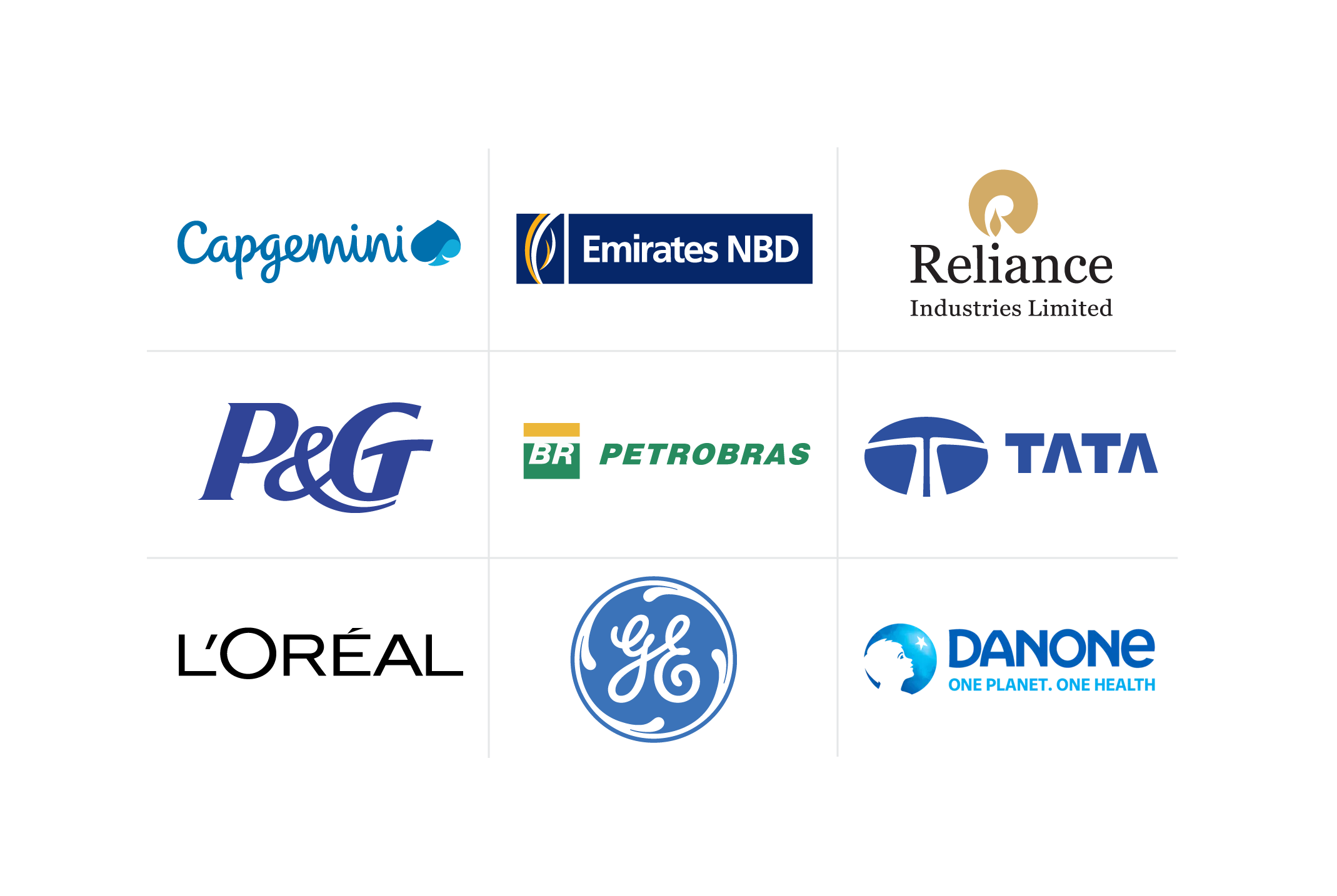10 Soft Skills Needed in the Workforce: A Guide for Companies
Explore 10 soft skills in the workforce that lead to the success of an organization.

Soft skills are crucial to success in a career and within an organization. Your employees use these skills each day in some capacity, and possessing and strengthening them can increase productivity and efficiency in the workplace. These skills are also valuable for individuals because they are transferable and applicable in various situations regardless of what organization or position employees work in.
Another name for soft skills is human skills, and both of these terms refer in a general sense to a person’s ability to connect with someone else using empathy, compassion, and authenticity. Specific examples of human skills include communication, problem-solving, teamwork, and time management, which can contribute to whether a company flourishes.
Explore 10 essential human skills that strengthen productivity and efficiency in the workplace, the difference between human and technical skills, and how you and your employees can enhance human skills through practice, training, and experience.
Understanding the importance of human skills in the workplace
Human skills power the workplace and drive its success. Because these skills involve communication, teamwork, and adaptability, the need to implement them can present itself in nearly every situation, no matter your employee's role, so it’s important to hire candidates with these skills and master them yourself.
Human skills vs. technical skills
Human skills are general skills such as critical thinking, adaptability, and emotional intelligence applicable to nearly every job and workplace. These skills help not only with a candidate’s professional life but also translate into their personal life when dealing with, for example, a challenging situation in a relationship. When considering a new hire, asking questions to gain an understanding of the individual’s capability regarding human skills can help you, as an employer, determine if that person is a good fit for your company.
Technical skills primarily focus on education, training, and experience specifically applicable to the role. For example, an aspiring marketing manager may need technical skills, including SEO knowledge and project management experience.
Impact of human skills on organizational success
Employers and employees with solid human skills may help lead to a company’s overall organizational success. When you hire employees who demonstrate several of these skills, your turnover rates tend to decrease, productivity increases, and teamwork and collaboration typically improve. Finally, employees with human skills generally are more invested in their work, personally driven, and productive, which can promote a positive environment in your organization.
Top 10 human skills every employee needs
Every employee, no matter the industry, needs to foster some of the following human skills to become successful within their career and contribute to the success of your organization:
1. Communication skills
Effective communication is crucial for an organization’s success, so when employees demonstrate strong communication skills, their interactions involve well-thought-out questions in which they exchange information swiftly and accurately. Essentially, an employee with robust communication skills can motivate their team while reducing instances of miscommunication, which can help create better results for both the individual and the organization.
Additionally, leaders need strong receptive communication skills. When an employee communicates progress on a task or lets you know they require assistance, you, as a leader, must give communicative feedback demonstrating you’ve listened, understood, and conveyed your expectations.
In the workplace, solid and effective communication skills enhance collaboration by building a foundation of trust and enthusiasm, which can contribute to overall employee satisfaction. Advocating for productive communication in the workplace helps your employees share ideas, be more creative, and become more connected as a team while decreasing the possibility of misunderstandings.
2. Teamwork and collaboration
Regarding human skills, teamwork and collaboration between coworkers often lead to a more efficient operation while increasing productivity within your organization. Building trust is a crucial component if you want to develop teamwork and cooperation further. According to The American Review of Public Administration, you can help employees foster trust between themselves by ensuring they follow several guidelines such as “clear communication, reciprocity, goal alignment, transparency, information, and knowledge sharing, and by demonstrating competency, good intentions, and follow-through [1].”
When you encourage more teamwork and collaboration in the workplace, you help foster positive working relationships between coworkers. When employees work together in pursuit of a singular goal, it creates a sense of shared accomplishment in the team, which can help everyone feel as if they belong to something bigger than themselves.
3. Problem-solving and critical thinking
Essentially, the human skills of problem-solving and critical thinking deal with an individual’s aptitude for utilizing knowledge, facts, and data to successfully find solutions to problems. The ability to resolve issues with critical thinking and a plan of action allows your teams to accomplish more with less time. An employee who is a critical thinker can typically perceive the cause of a problem and then develop several solutions.
When critical thinking skills are present in an employee, several characteristics may be present such as open-mindedness, a respect for facts and analysis, the ability to view and comprehend different points of view, and the capacity to avoid sticking to a certain position.
4. Adaptability and flexibility
Change happens every day, and the ability to adapt to these changes on the job is vital to your employees’ professional success. When your employees possess strong adaptability skills, your organization can adjust much faster to sudden changes while incorporating new skills and even technological advancements into their repertoire.
5. Time management
Managing time wisely is a skill that leads to productivity and efficiency in the workplace. Some significant aspects of time management for your employees include how they establish priorities, order their tasks, and schedule their responsibilities over a period of time. When your employees effectively manage their time, they tend to employ specific skills such as planning, goal setting, delegating, and blocking time.
To improve time management skills, your employees might consider keeping a daily calendar that lists what they need to accomplish and when they will do it. Finally, if you’re looking to share a few specific time-management techniques with your employees, some helpful ones include picking achievable goals, setting and adhering to deadlines, and following a particular plan.
6. Emotional intelligence
Another crucial human skill is emotional intelligence, which focuses on the ability to acknowledge and understand the emotions of others and oneself. In the workplace, emotional intelligence is crucial for fostering better conflict resolution while also encouraging more employees to share their thoughts about an issue. This can help avoid the problems that arise with groupthink.
Coworkers need emotional intelligence to communicate effectively and work well together because it allows people to understand another person’s perspective that might be different than their own. Employees look to leaders with high emotional intelligence as those who use empathy as a method for understanding, practice self-management regarding their emotions, and can provide mentorship and coaching in a respectful fashion. Displaying strong emotional intelligence skills may result in a higher position or a promotion in the future for your employees due to their ability to interact well and listen to others.
7. Leadership skills
Strong leaders set clear expectations, motivate others, and cultivate an atmosphere of communication and teamwork that can lead to success. Effective leaders increase workplace productivity and foster a more positive work environment for others.
Many human skills are interconnected, specifically strong communication and leadership. To be an effective leader, you need to have strong communication skills because they help you build relationships, develop trust, and motivate others to collaborate. Additionally, delivering your ideas and expectations clearly and concisely makes it more likely for employees to meet them.
Read more: 8 Tips for Developing Your Leadership Skills
8. Conflict resolution
Conflict may happen in any situation, especially in the workplace, but conflict resolution is all about how you act when conflict presents itself. Having the skills to find a resolution when conflict exists, listening to both sides of an argument, and having patience with others is essential to succeeding in the workplace and as a leader.
As a leader, when you need to manage a conflict in the workplace, you can demonstrate productive resolution skills by using “I” statements, avoiding casting blame on someone, maintaining a peaceful tone, and including humor as long as it fits the situation. To strengthen conflict resolution skills among your team, practice role-playing conflicts, attend workshops, and use feedback.
9. Creativity and innovation
The ability to create and invent new ideas in the workplace can increase productivity, problem-solving, and adaptability. A company needs creative individuals because developing this type of culture can improve teamwork. You might also notice a higher retention rate because employees tend to stick with companies that value their ideas.
Allowing your employees to voice their ideas and share creativity can keep your company from slipping into a state of “cognitive fixedness” in which you approach every situation in the same manner. Having an open mind and welcoming creative ideas can improve a business’s practices and help you discover new sections of your industry to pursue.
10. Networking and relationship building
Connecting with others, especially members of your team at work, is essential to success in a professional career. Advancement in a career includes developing human skills like networking and facilitating connections. Still, if you hire employees with these skills, these individuals can also help you grow your customer base while increasing the amount of business you do with current clients.
Furthermore, if you, for example, own a small business and are struggling to solve a particular problem, employees with a robust networking skill set might be able to reach out through their network to other small businesses and discover a solution. At its core, networking tends to be about sharing information, and gaining knowledge will likely benefit your business.

Developing human skills in your team
Consider the following ways to improve your employees’ human skills to promote continual growth and learning:
Courses and training: Learning these skills doesn’t stop after completing higher education. Employees can continue to learn and grow through online courses, self-assessments, and workplace professional development. You can also promote the search for Professional Certificates such as the University of Michigan’s Emotional Intelligence: Cultivating Immensely Human Interactions course or maybe Teamwork Skills: Communicating Effectively in Groups provided by the University of Colorado at Boulder.
Role play: Using role-playing on the job will help your employees further sharpen human skills such as communication, problem-solving, and empathy.
Provide mentorship: When you provide mentorship for your employees, you can receive a sense of satisfaction from guiding someone’s career and improving their skill set, including human skills like communication, teamwork, and adaptability.
Read more: 9 Ways to Boost Employee Skills at Your Company
Develop your workforce's skills with Coursera
Organizational and individual success requires human skills. As employers, promoting the continual growth and learning of human skills can help your employees become better equipped to problem-solve, communicate effectively, and work together. With the Leadership Academy from Coursera, employees can learn the skills needed to lead your business into the future. Through Coursera for Business, you’ll build effective managers at every level with beginner and advanced-level leadership content, including 40+ SkillSets to drive soft skill proficiency across the entire organization.
Article sources
1. The American Review of Public Administration. “Collaborative Public Management: Where Have We Been and Where Are We Going?, https://journals.sagepub.com/doi/pdf/10.1177/0275074012445780.” Accessed August 16, 2024.
This content has been made available for informational purposes only. Learners are advised to conduct additional research to ensure that courses and other credentials pursued meet their personal, professional, and financial goals.

